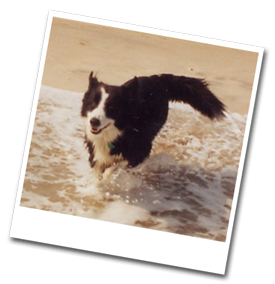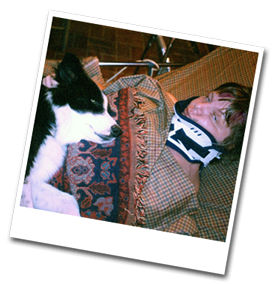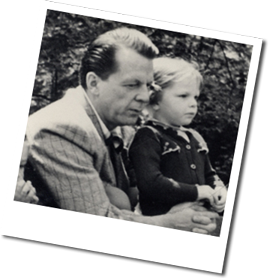![]()



A reader asks Deborah about Let Buster Lead:
In a nutshell, how should I describe this book to my friends? It's a true story about how my dog helped me discover I had Post-Traumatic Stress Disorder, then get well.
It's clear from reading your story that you're a very busy and successful woman. What motivated you to write a book? When I found out my dog was suffering from a terminal illness, I couldn't stop crying. He was the love of my life (yes, my husband does understand that), and there was nothing more I could do to keep him alive. I started writing about him to preserve my memories of him; I didn't want to forget one moment of our life together. I will always be grateful to him for how much he helped me. This is a tribute to him.
You rescued him from the dog pound, right? Yes. And he saved me.
You describe your symptoms of Post-Traumatic Stress Disorder (PTSD) in great detail. But you never fought in a war. Why do you think you got this disease? PTSD can result from all kinds of trauma. Almost everyone experiences trauma of some sort during their lives. The death of a loved one, loss of friends and security, a divorce, molestation, a serious injury, witnessing a serious injury, bullying. Too often, the person has to act quickly in this situation or finds it safest not to show fear. The emotional reactions to the trauma get delayed. Then they come out later when the original cause isn't apparent.
Were yours typical symptoms? After my publisher sent the manuscript to the printer, when I could no longer edit anything, I started reading books about PTSD. And, to answer your very good question, yes. My symptoms were "textbook."
Tell me which ones stood out for you the most. Do you mean when I had the symptoms, or what I've learned about them since?
Both. Well, the most damaging to my life was my industrial strength irritability (worse than the worst PMS) and my insistence on never being touched. This behavior was hurtful and confusing to my wonderful husband. I'm glad I was never violent, because many PTSD sufferers can be violent. My most obvious symptom was feeling paralyzed, literally not being able to speak or move, when I was approached by people in public. A few times I screamed when I was touched without warning. Then I felt hyper-vigilance for hours afterward; I could feel adrenaline surge through my body. I've since learned that many people freeze during traumatic experiences or events that remind their bodies of them. This is why rape victims are often accused of not defending themselves. The most subtle symptom I experienced was withdrawal from society. I now know that many PTSD sufferers experience this. It wasn’t as though I said to myself, "I'm not going to go out unless I absolutely have to for the next year and a half." I just talked myself into staying home, every night and day.
You just used the term "remind their bodies." What did you mean by that? I've learned that PTSD is physiological, not psychological. You can't just convince your mind to rise above your behavior. It's what they call a somatic illness, an illness of the body. The body is reacting to things without the brain telling it to. Like when you swat at a mosquito that suddenly flies into your face, or flinch when you touch something hot.
In your book, you describe how it was often difficult to get around with a disability. Have you ever parked in a handicapped parking space? Before I was disabled, yes. I did do that, once or twice. I am guilty! But only if I was in a hurry. My thinking then was, "These are only here because they have to be. Nobody actually uses them." Since I've experienced being exhausted and unable to walk more than a few steps without pain, especially while carrying packages, I never park in them.
How do you feel about people who do? I've noticed people are, for the most part, wonderful about that. I almost never see a car in one of those spaces, unless it has a blue permit.
And when people don't have the permit? Many people don't understand what it's like to live with a disability because they haven't had their turn yet. Any one of us, without warning, could join the millions of people who have disabilities. They just want to get their errands done, like everyone else. But getting out is harder for them.
You describe how Buster became your service dog, and helped you have the courage to go out and get your own errands done. Aren't you concerned that your book will encourage people to try and make their pets into service dogs just to be able to take them to the movies? I hope they'll take them to movies about pets, not about people experiencing trauma. I really do think animals watch these things. But, seriously, it's very important to protect any ADA law that helps people get through life. We mustn't abuse these laws because they're there for all of us. These dogs (and sometimes other animals) are essential health aids like wheelchairs or artificial limbs. People need them.
Do you have any final advice for people who may have experienced trauma? PTSD can happen to any of us. It happened to me. It's nothing to be ashamed of. If you're thinking about an awful incident more than five times a day, if you're jumpy, often uptight, more alert than usual, unable to sleep, depressed, having nightmares or don't want to be touched, get help. You could be a danger to yourself or someone else. Get help from a therapist who is trained in PTSD. There are many non-profit and public programs that can help with this. If the therapist asks you what the letters stand for, go and find another therapist. But, please get help. You don't have to live this way.
